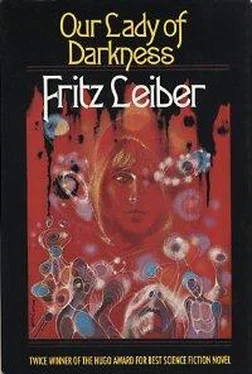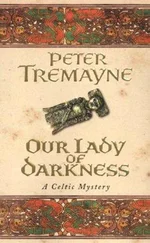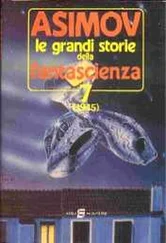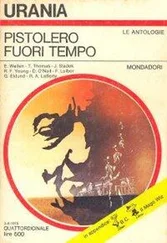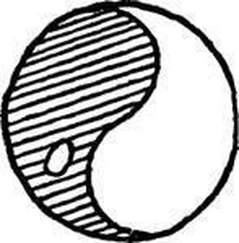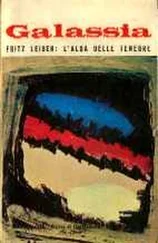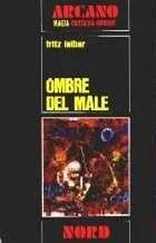At any particular time of history there have always been one or two cities of the monstrous sort—viz., Babel or Babylon, Ur-Lhassa, Nineveh, Syracuse, Rome, Samarkand, Tenochtitlan, Peking—but we live in the Megapolitan (or Necropolitan) Age, when such disastrous blights are manifold and threaten to conjoin and enshroud the world with funebral yet multipotent city-stuff. We need a Black Pythagoras to spy out the evil lay of our monstrous cities and their foul shrieking songs, even as the White Pythagoras spied out the lay of the heavenly spheres and their crystalline symphonies, two and a half millennia ago.
Or, adding thereto more of his own brand of the occult:
Since we modern city-men already dwell in tombs, inured after a fashion to mortality, the possibility arises of the indefinite prolongation of this life-in-death. Yet, although quite practicable, it would be a most morbid and dejected existence, without vitality or even thought, but only paramentation, our chief companions paramental entities of azoic origin more vicious than spiders or weasels.
Now what would paramentation be like? Franz wondered. Trance? Opium dreams? Dark, writhing phantoms born of sensory deprivation? Or something entirely different?
Or:
The electro-mephitic city-stuff whereof I speak has potencies for achieving vast effects at distant times and localities, even in the far future and on other orbs, but of the manipulations required for the production and control of such I do not intend to discourse in these pages.
As the overworked yet vigorous current exclamation had it, wow! Franz picked up one of the old crumble-edged pulps and was tempted to read Smith’s marvelous fantasy, “The City of the Singing Flame,” in which great looming metropolises move about and give battle to each other, but he resolutely set it aside for the journal.
Smith (he was sure it was he) had certainly been greatly impressed by de Castries (must be he also), as well he might have been almost fifty years ago. And he had clearly read Megapolisomancy , too. It occurred to Franz that this copy was most likely Smith’s. Here was a typical passage in the journal:
Three hours today at 607 Rhodes with the furious Tybalt. All I could take. Half the time railing at his fallen-off acolytes, the other half contemptuously tossing me scraps of paranatural truth. But what scraps! That bit about the significance of diagonal streets! How that old devil sees into cities and their invisible sicknesses—a new Pasteur, but of the dead-alive.
He says his book is kindergarten stuff, but the new thing—the core and why of it and how to work it—he keeps only in his mind and in the Grand Cipher he’s so sly about. He sometimes calls it (the Cipher) his Fifty-Book, that is, if I’m right and they are the same. Why fifty?
I should write Howard about it, he’d be astounded and—yes!—transfigured, it so agrees with and illuminates the decadent and putrescent horror he finds in New York City and Boston and even Providence (not Levantines and Mediterraneans, but half-sensed paramentals!). But I’m not sure he could take it. For that matter, I’m not sure how much more of it I can take myself. And if I so much as hint to old Tiberius at sharing his paranatural knowledge with other kindred spirits, he grows as ugly as his namesake in his last Caprian days and goes back to excoriating those whom he feels failed and betrayed him in the Hermetic Order he created.
I should get out myself—I’ve all that I can use and there are stories crying to be written. But can I give up the ultimate ecstasy of knowing each day I’ll hear from the very lips of Black Pythagoras some new paranatural truth? It’s like a drug I have to have. Who can give up such fantasy?—especially when the fantasy is the truth .
The paranatural, only a word— but what it signifies ! The supernatural—a dream of grandmothers and priest and horror writers. But the paranatural! Yet how much can I take? Could I stand full contact with a paramental entity and not crack up?
Coming back today, I felt that my senses were metamorphosing. San Francisco was a mega-necropolis vibrant with paramentals on the verge of vision and of audition, each block a surreal cenotaph that would bury Dali, and I one of the living dead aware of everything with cold delight. But now I am afraid of this room’s walls!
Franz glanced with a chuckle at the drab wall next to the inside of the bed and below the spiderwebby drawing of the TV tower on fluorescent red, remarking to his Scholar’s Mistress lying between them, “He certainly was worked up about it, wasn’t he, dear?”
Then his face grew intent again. The “Howard” in the entry had to be Howard Phillips Lovecraft, that twentieth-century puritanic Poe from Providence, with his regrettable but undeniable loathing of the immigrant swarms he felt were threatening the traditions and monuments of his beloved New England and the whole Eastern seaboard. (And hadn’t Lovecraft done some ghost-writing for a man with a name like Castries? Caster? Carswell?) He and Smith had been close friends by correspondence. While the mention of a Black Pythagoras was pretty well enough by itself to prove that the keeper of the journal had read de Castries’s book. And those references to a Hermetic Order and a Grand Cipher (or Fifty-Book) teased the imagination. But Smith (who else?) had clearly been as much terrified as fascinated by the ramblings of his crabbed mentor. It showed up even more strikingly in a later entry.
Hated what gloating Tiberius hinted today about the disappearance of Bierce and the deaths of Sterling and Jack London. Not only that they were suicides (which I categorically deny, particularly in the case of Sterling!) but that there were other elements in their deaths—elements for which the old devil appears to take credit .
He positively sniggered as he said, “You can be sure of one thing, my dear boy, that all of them had a very rough time paramentally before they were snuffed out, or shuffled off to their gray paranatural hells. Very distressing, but it’s the common fate of Judases—and little busybodies,” he added, glaring at me from under his tangled white eyebrows.
Could he be hypnotising me?
Why do I linger on, now that the menaces outweigh the revelations? That disjointed stuff about techniques of giving paramental entities the scent—clearly a threat.
Franz frowned. He knew quite a bit about the brilliant literary group centered in San Francisco at the turn of the century and of the strangely large number of them who had come to tragic ends—among those, the macabre writer Ambrose Bierce vanishing in revolution-torn Mexico in 1913, London dying of uremia and morphine poisoning a little later, and the fantasy poet Sterling perishing of poison in the 1920s. He reminded himself to ask Jaime Donaldus Byers more about the whole business at the first opportunity.
The final diary entry, which broke off in the middle of a sentence, was in the same vein:
Today surprised Tiberius making entries in black ink in a ledger of the sort used for bookkeeping. His Fifty-Book? The Grand Cipher? I glimpsed a solid page of what looked like astronomical and astrological symbols (Could there be fifty such?) before he snapped it shut and accused me of spying. I tried to get him off the topic, but he would talk of nothing else.
Why do I stay? The man is a genius (paragenius?) but he’s also a paranoiac!
Читать дальше
